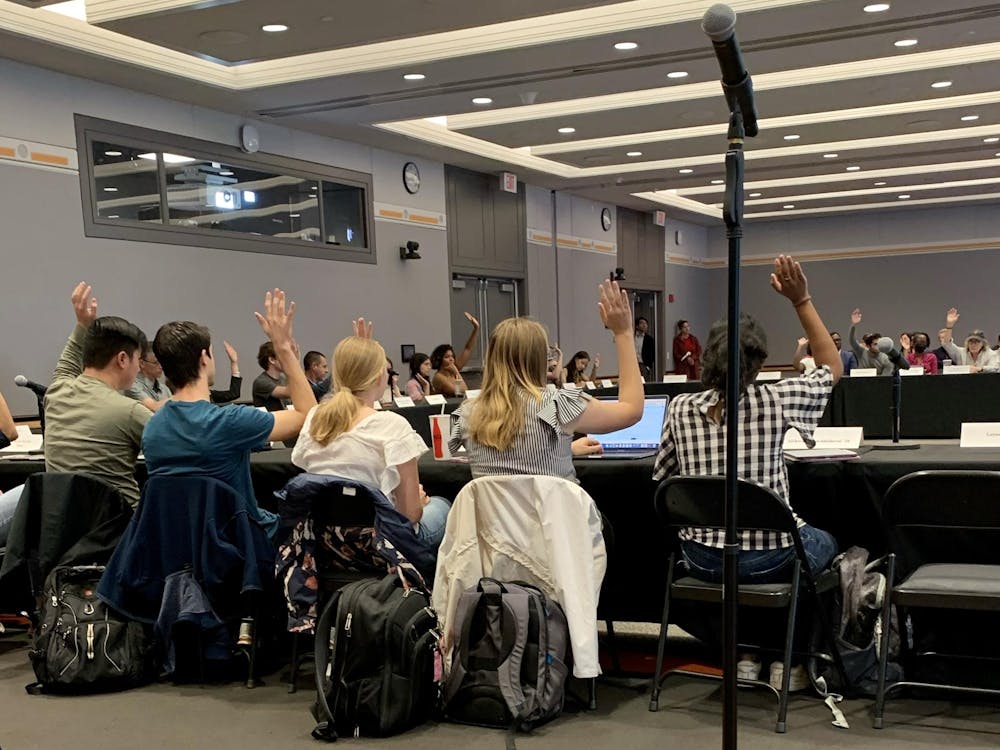If “Jackie” wasn’t actually raped initially, she certainly has been victimized now — this time by Rolling Stone, her three friends, the Phi Kappa Psi fraternity and the University of Virginia and its administrators.
Calling more attention to rape on college campuses and beyond is extremely important; however, it should not be built on the basis of lies. This past November, Rolling Stone failed the most basic journalistic tenet of telling the truth when they failed to fact-check their article on an alleged gang rape at a fraternity at UVA and the University’s response. When other newspapers started to follow up on the original article, the narrative quickly unraveled. The whole thing did a disservice to sexual assault victims and activists, to journalism as a whole and to the named fraternity and UVA.
After it became apparent that there were numerous inaccuracies in the story and Rolling Stone retracted the article, Rolling Stone asked the Columbia Graduate School of Journalism to investigate and write a report about what went wrong. The 12,000-word scathing report came out this past Sunday. In light of this, rather than implement firings and policy changes, Rolling Stone incredibly has double downed and blamed the alleged victim “Jackie,” shifting the blame on her rather than owning up to its own laziness and utter lack of fact-checking.
Rolling Stone’s original article and its response to the recent report on the entire scandal ironically mirror what is wrong with our current sexual assault policies on many college campuses. Rolling Stone blamed the survivor and did little to investigate to determine the actual facts. When in the wake of the Rolling Stone article, the police and theColumbia School of Journalism interviewed Jackie’s friends, who she confided in after the incident, they couldn’t corroborate the gang rape. The friends did believe, however, that Jackie had been through some type of trauma. A quick check with these friends would have gotten the fact that Jackie’s story wasn’t quite right but that something had happened to her — and that something that actually happened is important. Now it will probably never be dealt with.
Rather than get to the heart of what did happen to Jackie, Rolling Stone was all too eager to print the sensational story and bask in the national spotlight. It is clear now that the story Jackie told was not correct, but it was Rolling Stone’s responsibility to fact-check and get this story right, not Jackie’s.
Rolling Stone’s lack of acknowledging its active part in this scandal is only perpetuating the initial problems from the original article. The fact that this article was published with so many errors shows clear problems in its reporting and editing process. The Washington Post first uncovered these inconsistencies only days later. Even after an extensive four-month investigation, the Charlottesville police could not find any substantial evidence that the assaults mentioned in the article had ever occurred.
These mistakes certainly should have been caught before being published. Unfortunately the writer, Sabrina Erdely, cannot be fired, as she is a freelance magazine journalist. However, the blame is much more systemic. The editor and fact-checkers also have a responsibility for due diligence to ensure that each story they edit and publish is accurate. While there is no perfect solution, there are many things Rolling Stone could do. For instance, Rolling Stone could state that it will not publish another article by Erdely and those editors and fact-checkers involved with the story could be fired or suspended. But instead they are doing nothing.
Rolling Stone is failing to treat this as a journalistic scandal. They’ve damaged the reputations of real people and institutions and potentially created further distrust of sexual assault victims, already a major problem in our society. In fact, the fraternity is now suing Rolling Stone, only bolstering the false narrative of girls crying rape. Rolling Stone’s indifference to the truth is journalistic malpractice and its gravity should be understood as such. The fact that no one has been or is going to be fired or even disciplined, according to CNN, demonstrates that the Rolling Stone leadership is not taking this incident seriously.
As the Columbia report mentions, the managing editor acknowledged that “the story’s breakdown reflected both an ‘individual failure’ and ‘procedural failure, an institutional failure.’ ” Erdely let personal feelings toward the issue override good journalistic judgment. Moreover, though apparently a fact-checker is assigned to every article, the recommendations they suggested in edits were never followed up on, nor did they cover the extent of the problems in the piece that they probably should have. The need for sensitivity toward victims does not outweigh a journalist’s responsibility to corroborate and fact-check. While perhaps issues should be phrased carefully, the failure to uphold these journalistic standards ultimately injures everyone more.
As the Columbia report summarized perfectly, “the responsibilities that universities have in preventing campus sexual assault — and the standards of performance they should be held to — are important matters of public interest. Rolling Stone was right to take them on. The pattern of its failure draws a map of how to do better.”
Marni Morse is a sophomore from Washington, D.C. She can be reached at mlmorse@princeton.edu.









